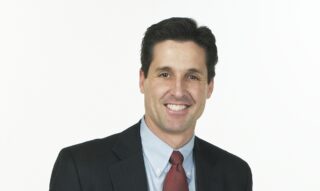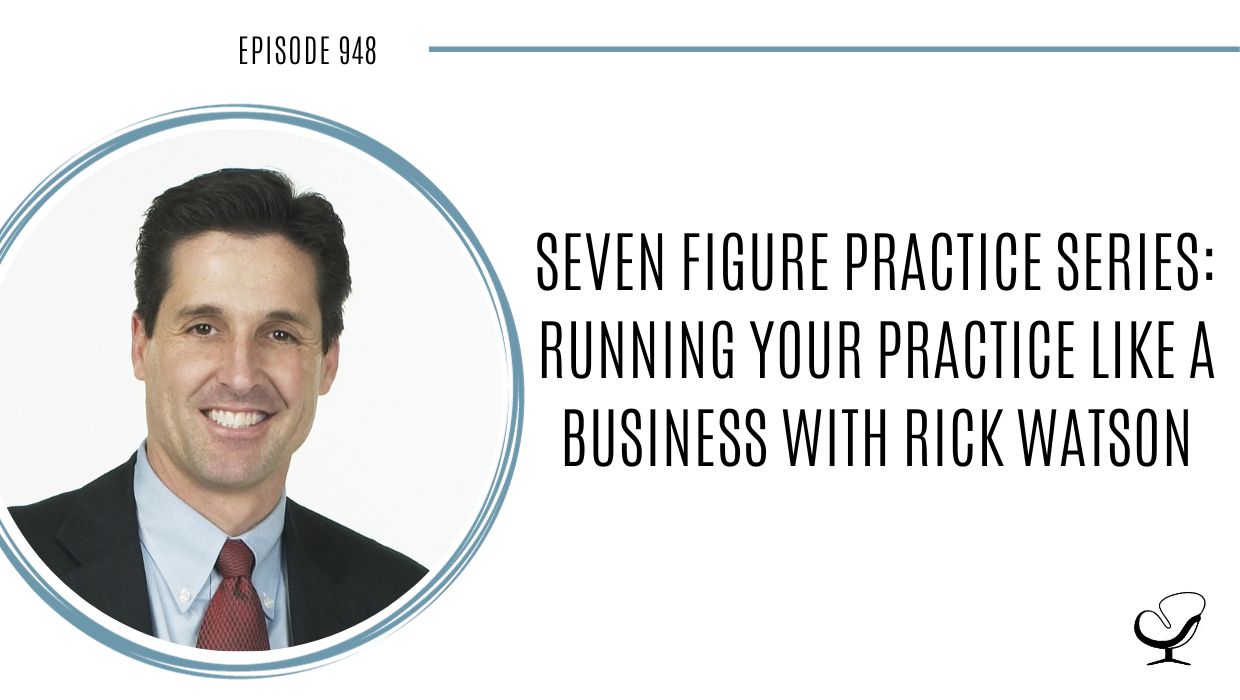Podcast: Play in new window | Download | Embed
Are you having trouble running your practice like a successful business? Have you heard of the idea of “trust compression”? Why should you build up other leaders within your practice except yourself?
In this podcast episode of the Seven Figure Practice series, Joe Sanok speaks about running your practice like a business with Rick Watson.
Podcast Sponsor: Alma

Going in-network with insurance can be tough. Filing all of the right paperwork is time-consuming and tedious, and even after you’re done, it can take months to get credentialed and start seeing clients.
That’s why Alma makes it easy and financially rewarding to accept insurance. When you join their insurance program, you can get credentialed within 45 days, and access enhanced reimbursement rates with major payers. They also handle all of the paperwork, from eligibility checks to claims submissions, and guarantee payment within two weeks of each appointment.
Once you’ve joined Alma’s insurance program, you can see clients in your state of licensure regardless of where you’re working from.
Learn more about building a thriving private practice with Alma at helloalma.com/joe
Meet Rick Watson

Rick Watson is the author of “A Firm Worth Building”, which helps professional businesses scale and thrive. Rick’s unique experience was forged from growing his firm, Protection Point Advisors, with only $20 in his savings to managing ½ billion dollars in his current RIA, and becoming the CEO of the National Referral Network and several other businesses. Living with his family on a 5-acre horse ranch and wine-making operation in California where he still finds the time to enjoy the life that he has been able to build through embodying his teachings.
Visit the National Referral Network, Protection Point, and connect on Facebook and LinkedIn.
Freebie: Buy and rate Rick’s book on Amazon, send him the receipt and they will refund the cost!In this Podcast
- Things that you might be doing wrong in scaling
- The concept of “trust compression”
- Building leaders in your practice besides yourself
- Common challenges in scaling
- Rick’s advice to private practitioners
Things that you might be doing wrong in scaling
For Rick, the most common mistake that he sees business owners making when they are trying to scale beyond five into six figures is that they didn’t take the time to build the correct foundation for their business in the first place.
It’s easy to grow with less in the beginning, but as your business gains traction and earns more and therefore requires more maintenance, then a strong foundation and team becomes integral to that success.
They build to a certain point and the entity falls off its own weight and they start over again, and that happens over and over again, it’s what we call a “J” curve; they grow to the maximum inefficiency and then fall backwards and start over again. (Rick Watson)
No amount of mentors or insight into the business is going to resolve a lack of a strong foundation.
The concept of “trust compression”
Building trust is part of the business because you need people to like, know, and trust you to invest in your service, and that means that you need to be upfront and knowledgeable about what you do and can offer them so make that process quicker and easier.
What Rick has found in his business when it comes to “trust compression” is that it is not about the length of introductory sessions, but the amount of them that matter.
What we’ve done is broken our process into our appointment process … into short little steps, so instead of two appointments we have four appointments … So the relationship ages faster and trust is built faster. (Rick Watson)
In therapy, having multiple touch points could be good for therapists to connect with their clients.
For example, with onboarding, you could send one questionnaire to a client and they return it, or you could break it down a little more and have someone talk to the client. You could use videos as a tip from Rick, to send to clients and onboarding staff as well.
Building leaders in your practice besides yourself
Practice edification in your practice by developing your staff so that they can be part of how things are run, and so that they can help things to run smoothly.
We’re going to build people up. We’re going to say, “Now, Mary is the salt of the earth … And I’m so happy to have her with us, she does the best job of …” So if you build those people up, what happens is … you’ve elevated that person and you’ve given them some more momentum … And it allows you to delegate. (Rick Watson)
When you edify your staff you can delegate well, and you can trust that what you are asking them to do will get done.
The business leaders and practice owners who are able to delegate often experience great shifts in their success because they no longer have to carry everything on their shoulders.
They can trust their staff and therefore have the ability to look ahead and guide the business toward success while knowing that their staff are taking care of what needs to get done.
If 70% of the interactions you have with your clients are you, then you can’t scale [the business]. You have to find a way to do that, and edification is part of that. (Mike Watson)
Common challenges in scaling
Be careful to have scaling be the only goal because success just for the sake of success doesn’t really get you anywhere.
You need to know where you are going so that you can define how successful or not the business is. This is the same for your clinicians; you have to motivate them to be part of the vision and mission of the business so that they know that their work is intrinsically important and instrumental.
Even the boss gets held to account by the lowest person if [they] violate that experience that we’re trying to create. When you do that, you can build that culture, that’s success at the end of the day. (Rick Watson)
Rick’s advice to private practitioners
If you want to have a purpose-driven life and a purpose-driven practice, then step back and think about what you don’t like about the world, what should be better, and then invent that.
Books mentioned in this episode:
BOOK | Rick Watson, Michael Clarke & Patrick Salimi – A Firm Worth Building: Running a Better Professional Business
Sponsors Mentioned in this episode:
- Find out more about the Seven Figure Club!
- Learn more about building a thriving private practice with Alma at helloalma.com/joe
Useful links mentioned in this episode:
- Visit the National Referral Network, Protection Point, and connect on Facebook and LinkedIn.
- Save the date for Level Up Week: March 11-14, 2024!
-
Email Joe at [email protected] to suggest guests for the show
Check out these additional resources:
Events – click on the event’s dropdown
Sign up to join the free webinars and events here
Practice of the Practice Podcast Network
Free resources to help you start, grow, and scale
Apply to work with us — a decision-making matrix for your next steps
Meet Joe Sanok

Joe Sanok helps counselors to create thriving practices that are the envy of other counselors. He has helped counselors to grow their businesses by 50-500% and is proud of all the private practice owners who are growing their income, influence, and impact on the world. Click here to explore consulting with Joe.
Thanks For Listening!
Feel free to leave a comment below or share the social media below!

